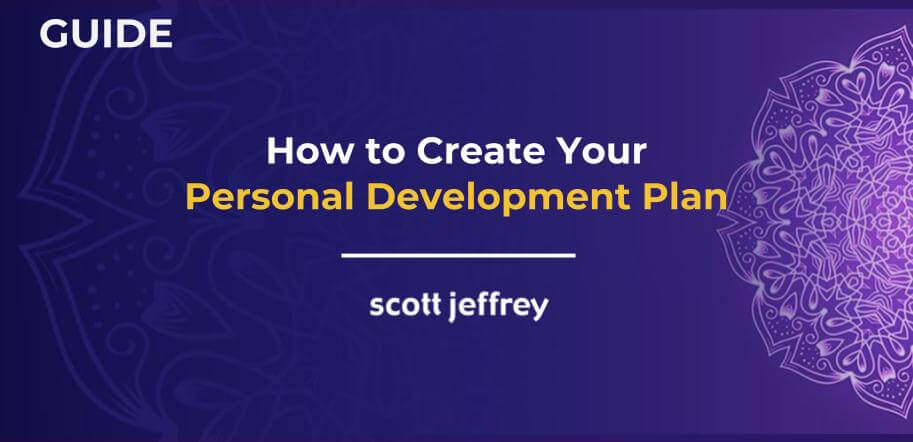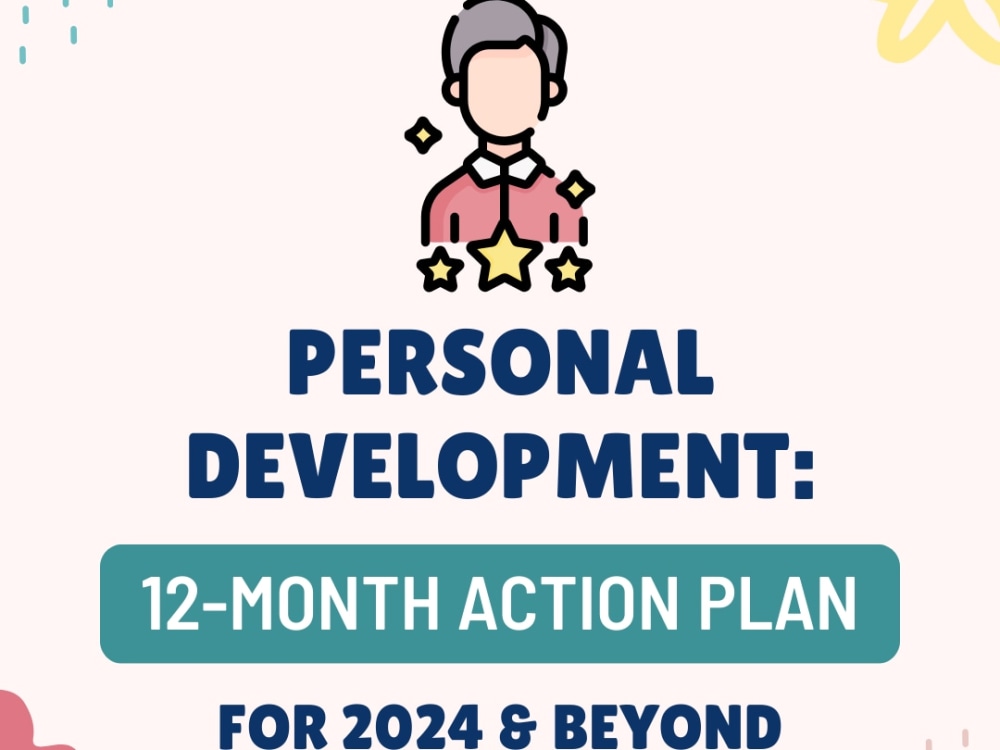Unlock your full potential with a personalized growth plan designed just for you. Discover the secrets to meaningful personal development.

Image courtesy of Valentin Antonucci via Pexels
Personal growth and development are essential components of leading a fulfilling and purposeful life. It involves a continuous process of self-improvement, learning, and introspection to reach your full potential. In this blog post, we will explore the power of personal growth and development and provide practical tips on how to transform your life through intentional growth strategies.
Understanding Personal Growth and Development
To begin our journey towards personal growth, it is important to first understand what personal growth and development entail. Personal growth refers to the process of expanding one’s self-awareness, knowledge, and skills to enhance overall well-being and quality of life. It involves stepping out of your comfort zone, challenging your beliefs and perspectives, and embracing new experiences for personal enrichment.
On the other hand, self-improvement focuses on specific areas of your life that you want to enhance, such as building confidence, improving communication skills, or achieving a better work-life balance. While personal growth is a broader, more holistic approach to self-discovery and development, self-improvement is more targeted and goal-oriented.
Research has shown that investing in personal growth and development can lead to improved mental and emotional well-being, increased motivation and productivity, stronger relationships, and a greater sense of fulfillment and purpose in life. By actively engaging in personal growth, you can unlock your true potential and live a more authentic and meaningful life.
Identifying Areas for Improvement
Before embarking on your personal growth journey, it is important to take stock of your current strengths and weaknesses. Self-awareness is a crucial first step in identifying areas for growth and recognizing the areas of your life that could benefit from improvement.
Reflect on your personal and professional life, relationships, habits, and goals. What are the areas that you excel in and where do you struggle? Are there recurring patterns or behaviors that hold you back from reaching your full potential? By honestly assessing your strengths and weaknesses, you can gain valuable insights into the areas of your life that may require attention and growth.
Consider seeking feedback from trusted friends, family members, or colleagues to gain a different perspective on your strengths and areas for improvement. Their insights can provide valuable feedback and help you identify blind spots that you may not have been aware of.
goals name=”setting-personal-development-goals”>Setting Personal Development Goals
Once you have identified the areas for growth, the next step is to set clear and achievable goals for your personal development. Setting specific, measurable, achievable, relevant, and time-bound (SMART) goals can help you stay focused and motivated on your growth journey.

Image courtesy of scottjeffrey.com via Google Images
Consider what you want to achieve through your personal growth efforts. Do you want to enhance your communication skills, overcome self-doubt, develop a growth mindset, or improve your physical health and wellness? By setting specific goals that align with your values, interests, and aspirations, you can create a roadmap for your personal development success.
For example, if your goal is to improve your time management skills, a SMART goal could be: “I will create a daily schedule and prioritize tasks based on importance and urgency to increase productivity and reduce stress by the end of the month.” This goal is specific, measurable, achievable, relevant, and time-bound, making it easier to track progress and stay on course.
Implementing Strategies for Growth
With your goals set, it is time to implement strategies for personal growth and development. This involves taking actionable steps towards achieving your goals, cultivating a growth mindset, and navigating obstacles and setbacks along the way.
One effective strategy for personal growth is to challenge yourself to step out of your comfort zone and try new experiences. Whether it’s taking a class, learning a new skill, volunteering for a cause you’re passionate about, or engaging in meaningful conversations with others, embracing new opportunities for growth can help you expand your knowledge and capabilities.
Cultivating a growth mindset is another key aspect of personal development. A growth mindset is the belief that your abilities and intelligence can be developed through effort, perseverance, and learning from failures. By adopting a growth mindset, you can overcome self-limiting beliefs, embrace challenges as opportunities for growth, and view setbacks as stepping stones towards success.
It is also important to anticipate and navigate obstacles and setbacks that may arise during your personal growth journey. Whether it’s fear of failure, lack of motivation, self-doubt, or external factors that hinder your progress, having strategies in place to overcome challenges can help you stay on track and achieve your goals.
Seeking Support and Accountability
Seeking support and accountability can be instrumental in sustaining your personal growth efforts and staying committed to your goals. Surrounding yourself with mentors, coaches, or like-minded individuals who support and encourage your growth can provide valuable guidance, feedback, and motivation along your journey.
| Phase | Activity | Goal | Timeline |
|---|---|---|---|
| Assessment | Reflect on strengths and weaknesses | Identify areas for improvement | 1 week |
| Goal Setting | Define specific, measurable goals | Set achievable milestones | 2 weeks |
| Skill Development | Take courses, attend workshops | Enhance skills and knowledge | 3 months |
| Feedback | Seek input from mentors, peers | Receive constructive feedback | 1 month |
| Reflection | Review progress, adjust goals | Stay on track, adapt as needed | Ongoing |

Image courtesy of www.upwork.com via Google Images
Consider joining a mastermind group, attending workshops or seminars, or seeking out a mentor who can offer insights and advice based on their own personal growth experiences. Having a support system in place can help you stay accountable, celebrate wins, and navigate challenges that may arise during your growth journey.
Accountability is also key to successfully achieving your personal development goals. Whether it’s setting regular check-ins with a friend, creating a progress tracker, or establishing rewards for reaching milestones, holding yourself accountable can help you stay focused, motivated, and on track towards your growth goals.
Celebrating Your Progress
As you make strides towards your personal growth goals, it is important to celebrate your progress and acknowledge the positive changes you have made in your life. Celebrating small wins along the way can boost your confidence, motivation, and sense of achievement, reinforcing your commitment to continued growth and development.
Consider establishing a reward system for reaching milestones, such as treating yourself to a spa day, indulging in a favorite meal, or taking a weekend getaway. By celebrating your progress and recognizing the effort you have put into your personal growth journey, you can cultivate a positive mindset and build momentum towards even greater successes.
Conclusion
Personal growth and development are powerful catalysts for transforming your life and unlocking your full potential. By understanding the importance of personal growth, identifying areas for improvement, setting clear goals, implementing growth strategies, seeking support and accountability, and celebrating your progress, you can craft a unique development plan that propels you towards a more fulfilling and purposeful life.
Embrace the journey of self-discovery, growth, and evolution, and commit to investing in your personal development with passion and dedication. As you embark on this transformative path, remember that personal growth is a lifelong journey of self-improvement, learning, and growth. Believe in your ability to grow, evolve, and thrive, and watch as your life transforms in remarkable and extraordinary ways.
FAQs
How often should I review and adjust my personal development goals?
It is recommended to review your goals regularly, such as monthly or quarterly, to track your progress and make necessary adjustments based on your evolving needs and priorities.
How can I overcome self-doubt and fear of failure during my personal growth journey?
Cultivate a growth mindset, seek support from mentors, and practice self-compassion to overcome self-doubt and fear of failure. Embrace challenges as opportunities for growth and learning.
How can I stay motivated and focused on my personal development goals?
Set meaningful and achievable goals, create a support system, establish accountability measures, and celebrate small wins along the way to stay motivated and focused on your personal development journey.
What are some ways I can continue my personal growth after achieving my initial goals?
Once you have achieved your initial goals, consider setting new challenges, learning new skills, seeking out new experiences, and continuing to push yourself outside of your comfort zone to sustain your personal growth and development journey.
Powered by Texta.ai Blog Automation
Leave a Reply